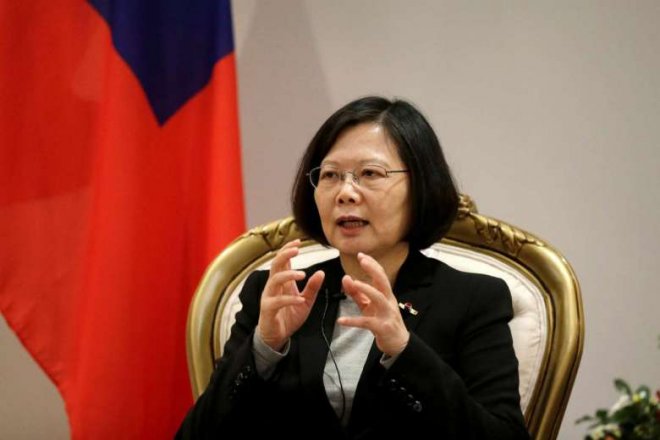
Taiwanese President Tsai Ing-wen asserted the island's territorial claims in the disputed South China Sea despite Beijing glowering down on it over US President-elect Donald Trump's custom-breaking telephone call with her last week.
The Taiwanese president's comments come after the island nation emerged as the latest flashpoint in the shaky US-China relations.
Tsai said Taiwan firmly upholds its sovereignty over islands in the disputed waters and that it espouses the principle of freedom of navigation and flights in the region, which have been hampered by China's ongoing militarisation.
Tsai said the government's pursuit of its interests in the region will be based on peaceful, humanitarian, ecological and sustainable development values, Focus Taiwan reported.
"The government will continue to cooperate and negotiate with these countries," Tsai said at an exhibition marking the 70th Anniversary of the recovery of the South China Sea Islands.
The leader re-asserted Taiwan's territorial claim over the Taiping Island, the largest island in the Spratly Islands. Tsai said Taiping, also known as Itu Aba, is "a major site for Taiwan to make substantive contributions to regional peace and stability."
Tsai also noted that since multiple countries have overlapping claims over the waters, the dispute must be dealt with as per international law and maritime law. She also said Taiwan should be included in the multilateral dispute settlement mechanism, the portal said.
China has toughened its stance against Taiwan after Tsai's controversial telephone call with Trump last week, saying the US should not allow the Taiwanese leader to transit through its airports.
China formally asked the US to block Tsai from making a transit in New York next month when she travels to Central America. Tsai is scheduled to visit Guatemala, one of its diplomatic allies in Central America, during Jan. 11-12.
Earlier China said Trump and Tsai undermined the One-China policy that China upholds and which had been agreed by the US and Taiwan.
No US president or president elect has held official talks with a Taiwanese leader since Washington adopted the One-China policy in 1979. China considers self ruling Taiwan as a renegade province and hasn't stood down on the possibility of using force to annex the island.








